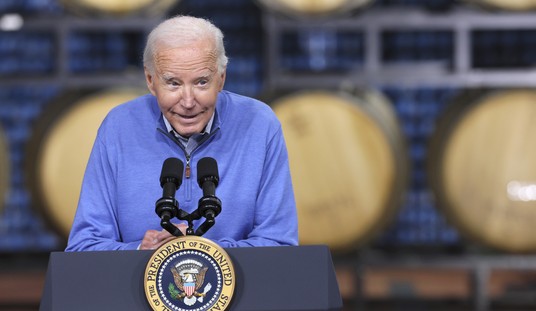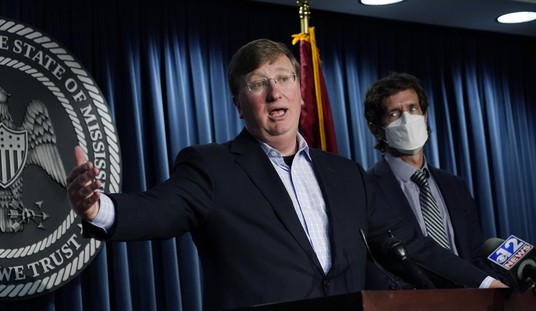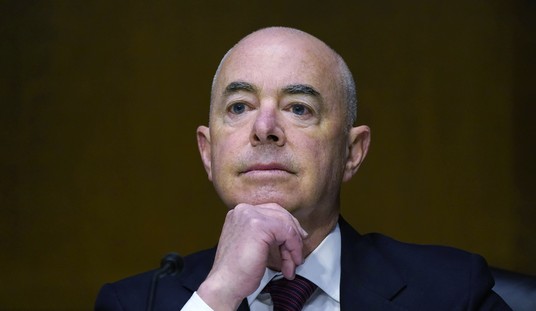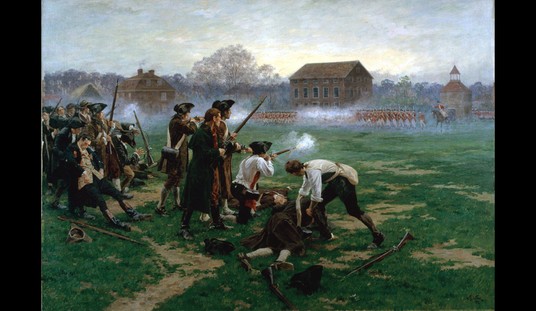 Now that the Supreme Court has agreed to hear the King v. Burwell challenge to the Federal subsidies in Obamacare, the defenders of the law are busy once again trying to trot the deliberate and intentional lie that the provision in Obamacare that limits the subsidies to those who are on “State” exchanges is a “typo” and that clearly Congress meant to include all exchange customers in the subsidies provision. Paul Krugman, who is even worse at being a lawyer than he is at being an economist, trotted out a representative sample of this patent dishonesty yesterday in the New York Times.
Now that the Supreme Court has agreed to hear the King v. Burwell challenge to the Federal subsidies in Obamacare, the defenders of the law are busy once again trying to trot the deliberate and intentional lie that the provision in Obamacare that limits the subsidies to those who are on “State” exchanges is a “typo” and that clearly Congress meant to include all exchange customers in the subsidies provision. Paul Krugman, who is even worse at being a lawyer than he is at being an economist, trotted out a representative sample of this patent dishonesty yesterday in the New York Times.
The first and only necessary rejoinder to this attack, at least from a legal standpoint, is, “So what?” It is not the job of the courts to fix Congress’ screw ups. If Congress screwed up a law and wrote it to say exactly the opposite of what they meant, a court does not have leeway to just rewrite the law accordingly. Fortunately for such an unfortunate Congress, there is a perfectly acceptable way for them to fix their “typos,” if they are in fact typos, which is that they can go back and amend the law through the normal legislative process.
But even setting that aside, it is clear, given the evidence that has been unearthed (by Greg Sargent, no less!) that the section in question was not a “typo” and that restricting subsidies to those who were on state-run exchanges reflects the clear intent of the law’s drafters. As Sargent pointed out some months ago when this argument became relevant in the context of the Halbig case (which raised the same issue before the D.C. Circuit),
The first Senate version of the health law to be passed in 2009 — by the Health, Education, Labor and Pensions Committee — explicitly stated that subsides would go to people on the federally-established exchange. A committee memo describing the bill circulated at the time spelled this out with total clarity.
***
The disputed language ended up in the final bill because the two versions — both of which intended subsidies in all 50 states, albeit by varying structures — were merged.
As I wrote at the time, under ordinary canons of statutory construction, this is considered conclusive proof that Congress actually intended to limit the subsidies to people who were on state-run exchanges:
This is not really a close call or a matter of reasonable dispute. Even for people who take legislative history as a thing that ought to be given great weight, the fact that Congress included a clause in an earlier version of the bill but then changed or removed it in the final version is considered to be conclusive evidence that Congress specifically desired the change in question, not that they intended the earlier version. Let’s say hypothetically that you had a bill that said when it came out of committee, “Congress hereby appropriates $10 million for the funding of studies the mating habits of pink salmon and $5 million for the funding of studies of the mating of silver salmon,” but the final version of the bill merely said “$1o million for the funding of studies of the mating habits of pink salmon,” courts (like reasonable people) come to the inescapable conclusion that the clause about the silver salmon was removed per the deliberate intent of Congress otherwise it would have remained in the bill.
Likewise if a bill comes out of committee that says “The Federal Government and the Several States shall have concurrent jurisdiction over the enforcement of this mandate” but the final bill that gets passed says “The Federal Government shall have jurisdiction over the enforcement of this mandate,” that is considered conclusive, case-ending evidence of Congressional intent to remove State jurisdiction over the enforcement of the mandate in question.
Don’t take my word for it. My colleague Dan McLaughlin has compiled a list of Supreme Court precedents repeatedly making this exact point – see here, here, and here for just a few examples.
Indeed, this is exactly the argument raised by the plaintiffs in King v. Burwell – but the Fourth Circuit initially rejected this argument because they ruled at the time that the Plaintiffs could not prove a sufficient nexus between the language of the HELP committee bill. However, the bill’s drafters admitted to Sargent (who was perceived by them to be a friendly source) that the language of the HELP committee bill was indeed a precursor to the final language of the bill.
In other words, it is now a matter of basically incontrovertible fact that the bill’s drafters intended to limit subsidies to people on state exchanges as a way to incentivize the states to start their own exchanges. As I noted at the time:
- The draft language from the HELP Committee bill was neither “news” nor a “bombshell”;
- It was relied upon, extensively, by the Halbig Plaintiffs – i.e., the people trying to get the subsidies struck down, because contrary to the assertions of Greg Sargent, this is evidence that actually strongly suggests that Congress intended to limit the subsidies to states with exchanges;
- This argument was rejected by the D.C. Circuit and the 4th Circuit because the Plaintiffs could not prove a sufficient connection between the HELP Committee bill and the final passed version of PPACA (Obamacare);
- Using his connections with people who would have never talked to attorneys for the Halbigplaintiffs, but who would have talked to him as a perceived friendly source, Greg Sargent has now established the definitive connection between the HELP Committee language and the final passed version of the PPACA that the D.C. Circuit and 4th Circuit found lacking[.]
There is no doubt that, now that a vast majority of states have refused to set up exchanges, the bill’s drafters would post hoc prefer that the subsidies not be limited to people who are on state exchanges, because doing so essentially undoes a substantial portion of the law. But the evidence available to us about their thinking at the time of drafting the bill clearly indicates that they assumed that the carrot/stick of refusing to give subsidies to states that refused to set up exchanges would be sufficient to ensure 100% participation by the states in the exchange program.
In short, they assumed that states would behave as states had always previously behaved – which is to say, that the power of the purse would be sufficient to force state compliance in setting up their own exchanges. The mistake made by the drafters of the bill was in underestimating the lingering political opposition to the bill after it passed, which they had good historical reason to do.
However, to suggest that limiting the subsidies to people on state exchanges in the actual text of the bill was a “typo” at the time the bill was drafted is a flat out and demonstrable lie.














Join the conversation as a VIP Member